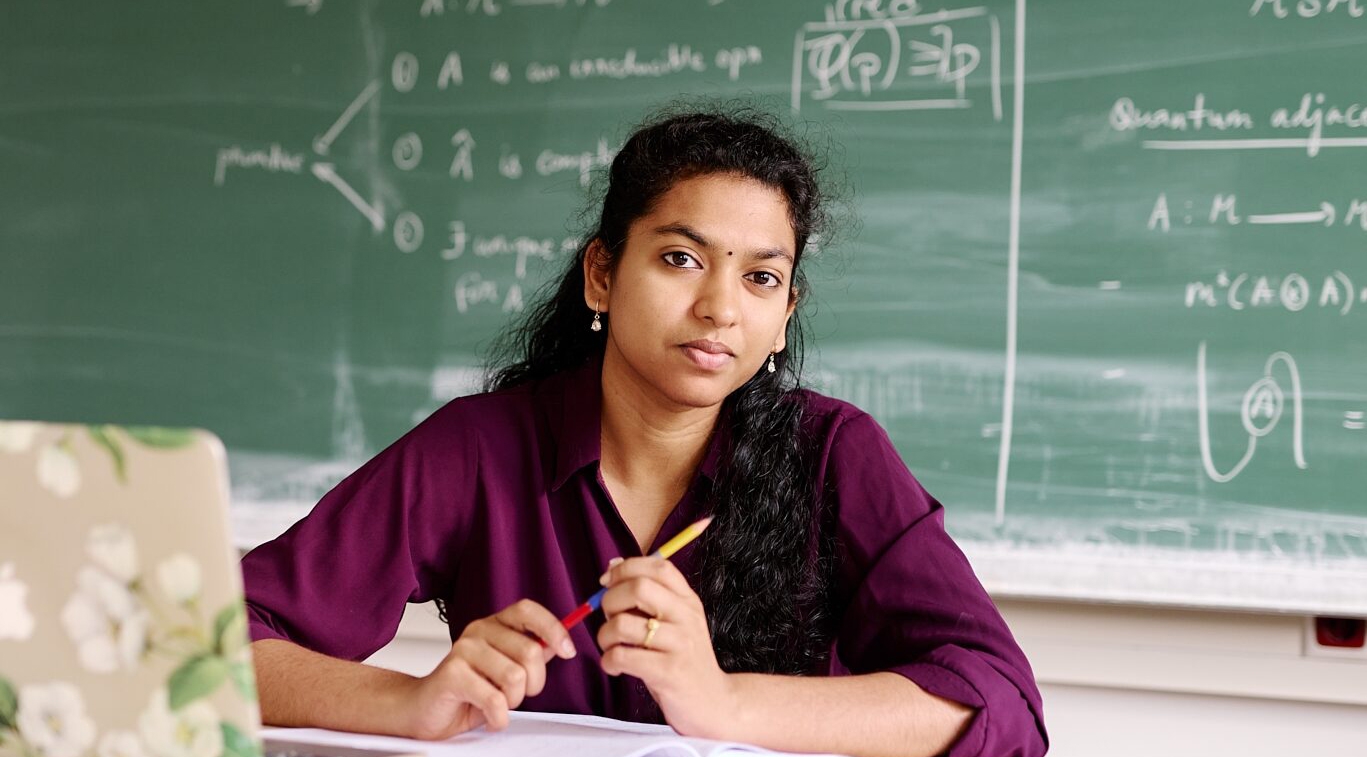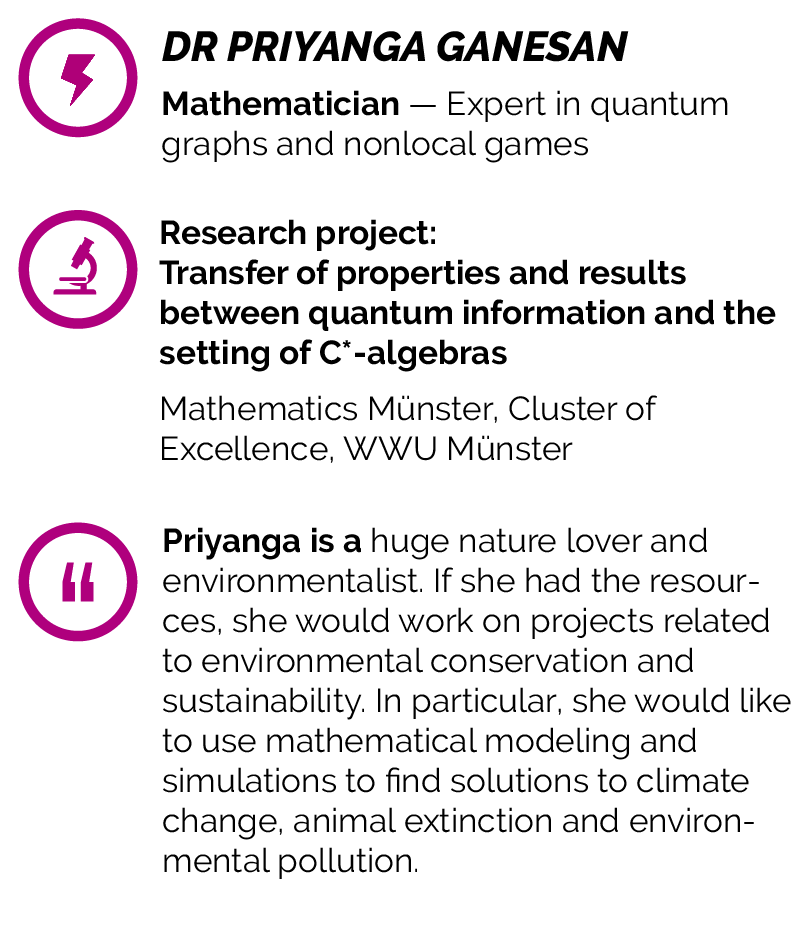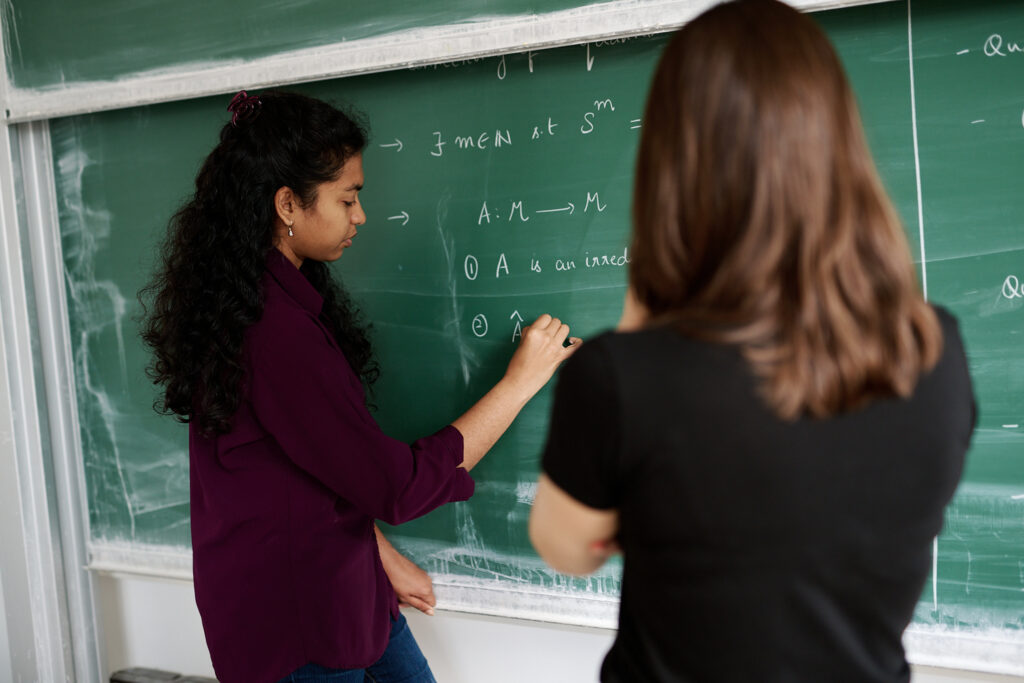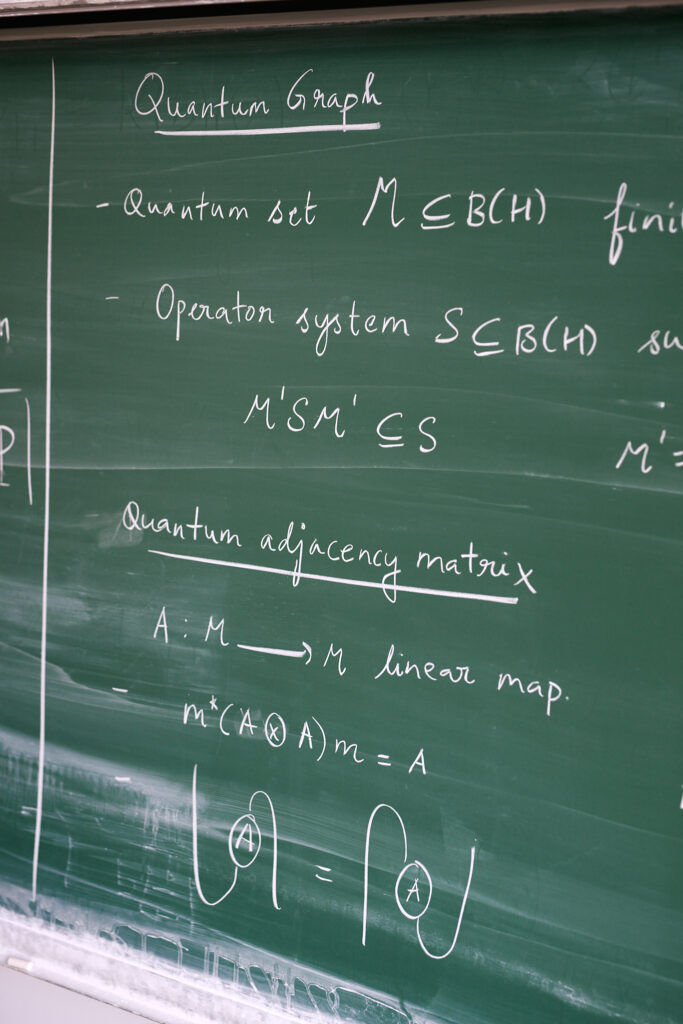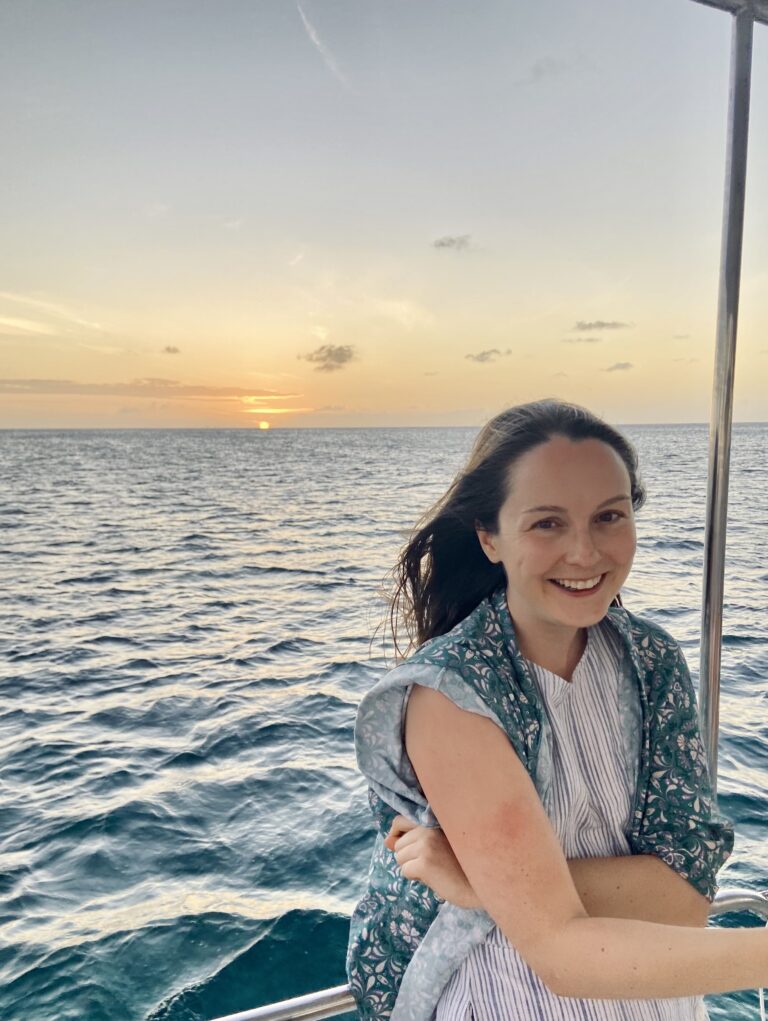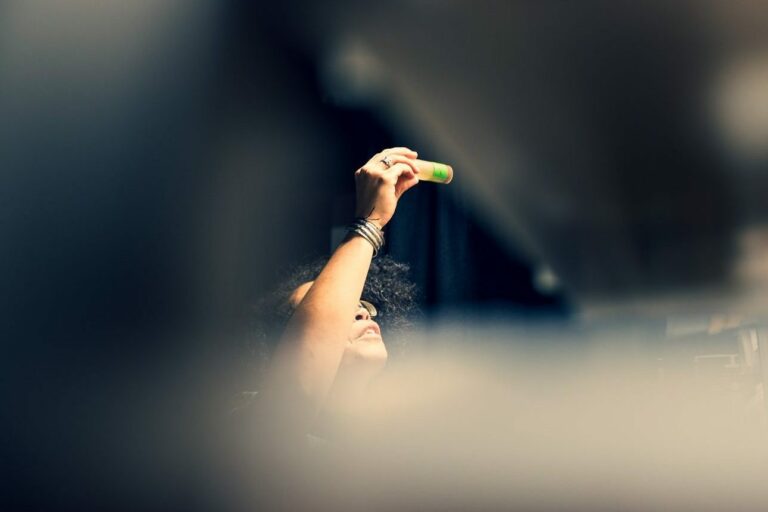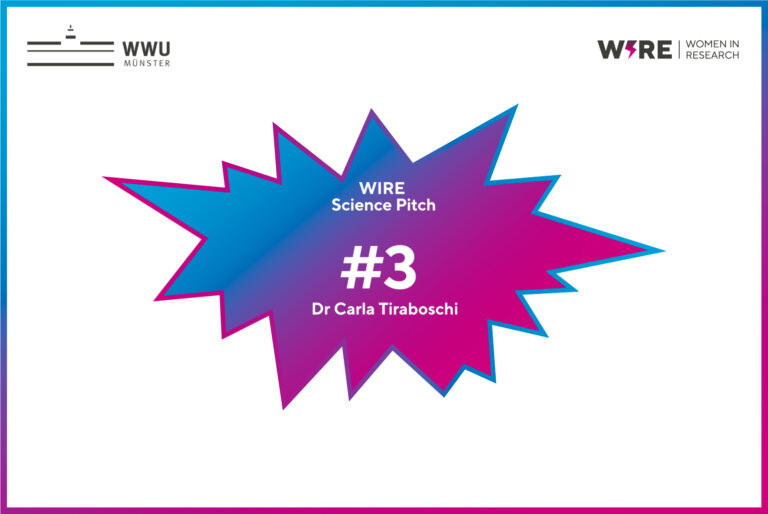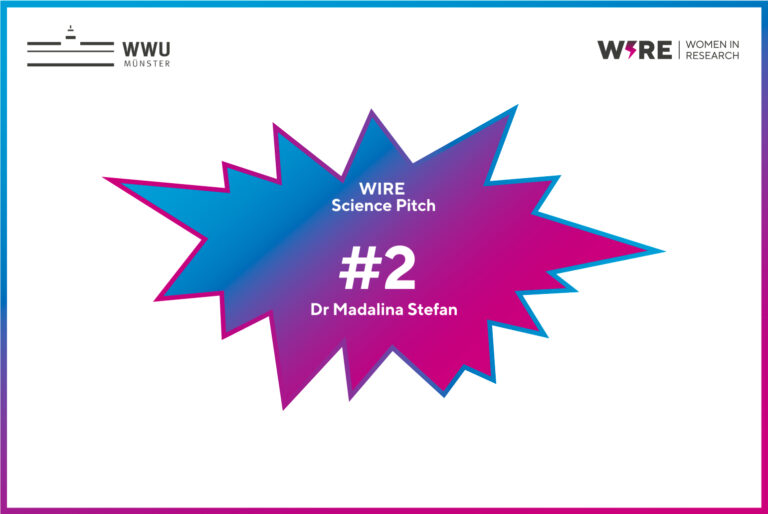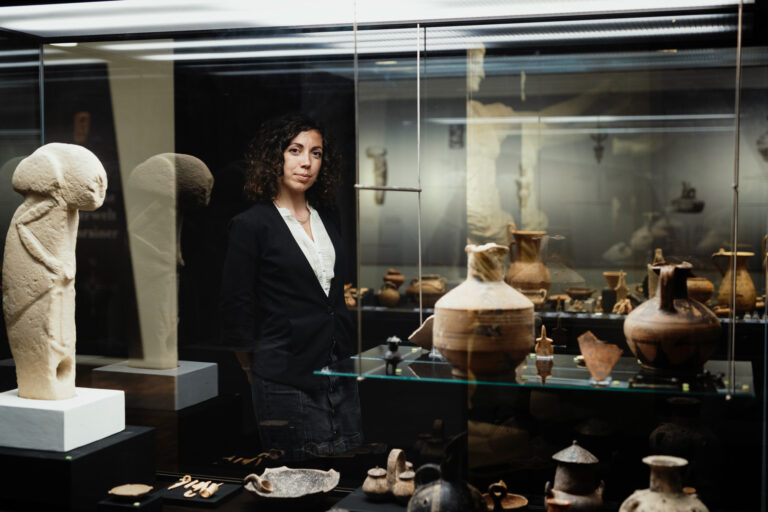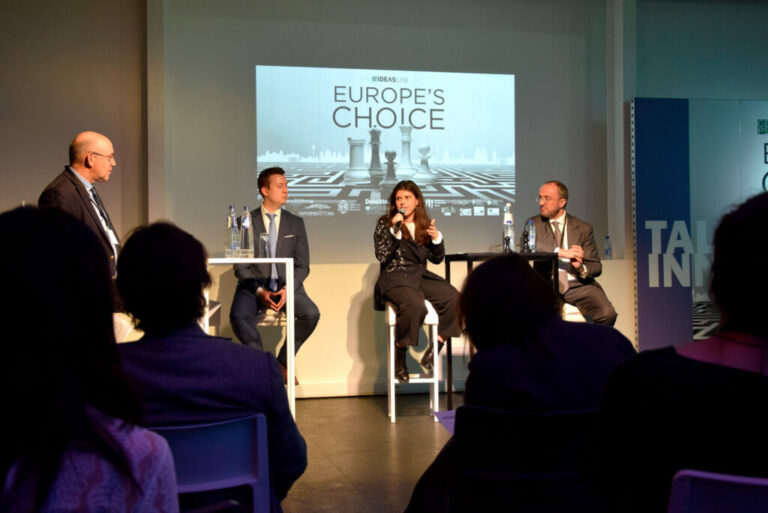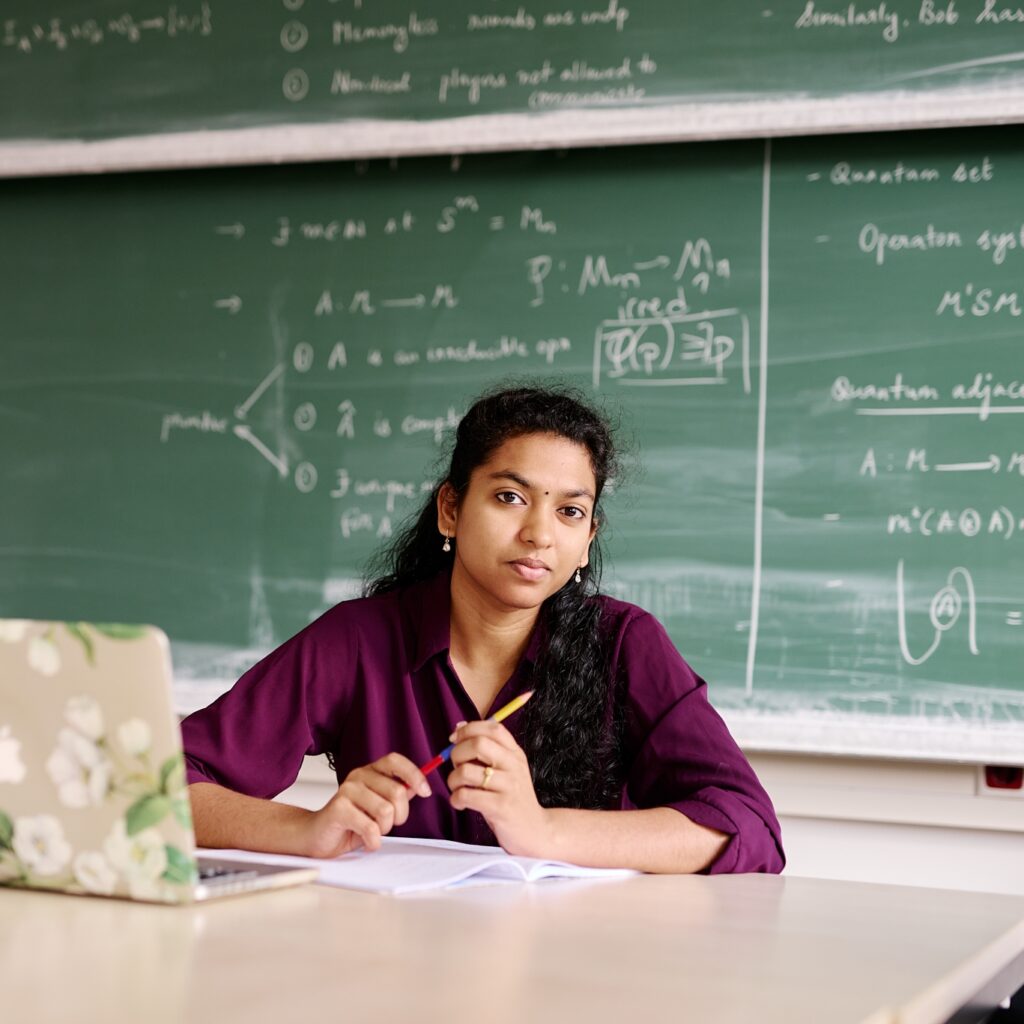
Furthering Accurate Transmission of Messages Through Quantum Channels – an Interview with Dr. Priyanga Ganesan
In the series “33 questions” we introduce, in no particular order, our WiRe Fellows who are currently working on a research project here at the University of Münster. Why 33? Well, if we think of the rush hour of life, it is kind of the age that lies in the middle. And we also like the number😉.
In today’s episode we are speaking with Dr. Priyanga Ganesan, a mathematician and passionate lover of logic.
1. What motivated you to work in the field of mathematics?
As a child, I loved geometric concepts and logical deductions, and was often able to arrive at formulas and ideas before they were taught in my math class. I enjoyed solving mathematical problems and wanted to teach this beautiful subject to more people. This motivated me to pursue an academic career in mathematics.
2. Describe your daily work in three words.
Abstract, interdisciplinary and challenging.
3. Describe your research topic in three words.
Operators, algebras and quantum.
4. A good mathematician needs…?
… a logical aptitude, creativity, curiosity, insight to recognize different perspectives to a problem, a broad knowledge base and persistence.
5. What does a typical (work) day look like for you?
As a research postdoc with no teaching duties, I have ample flexibility in my schedule. Typically, I wake up around 7:30am and start my day by checking emails and my calendar to plan my day. I spend the first few hours in the morning completing household chores before heading to my office or beginning working from home around 10am. My work typically involves preparing and attending research meetings, giving presentations, reading/writing research papers, planning for conferences, organizing professional events, and responding to emails. Around sunset, I spend an hour exercising or staying outdoors. I choose to get more work done in the evening or not, depending on the day. After that, it is family time and I go to sleep around 11pm.
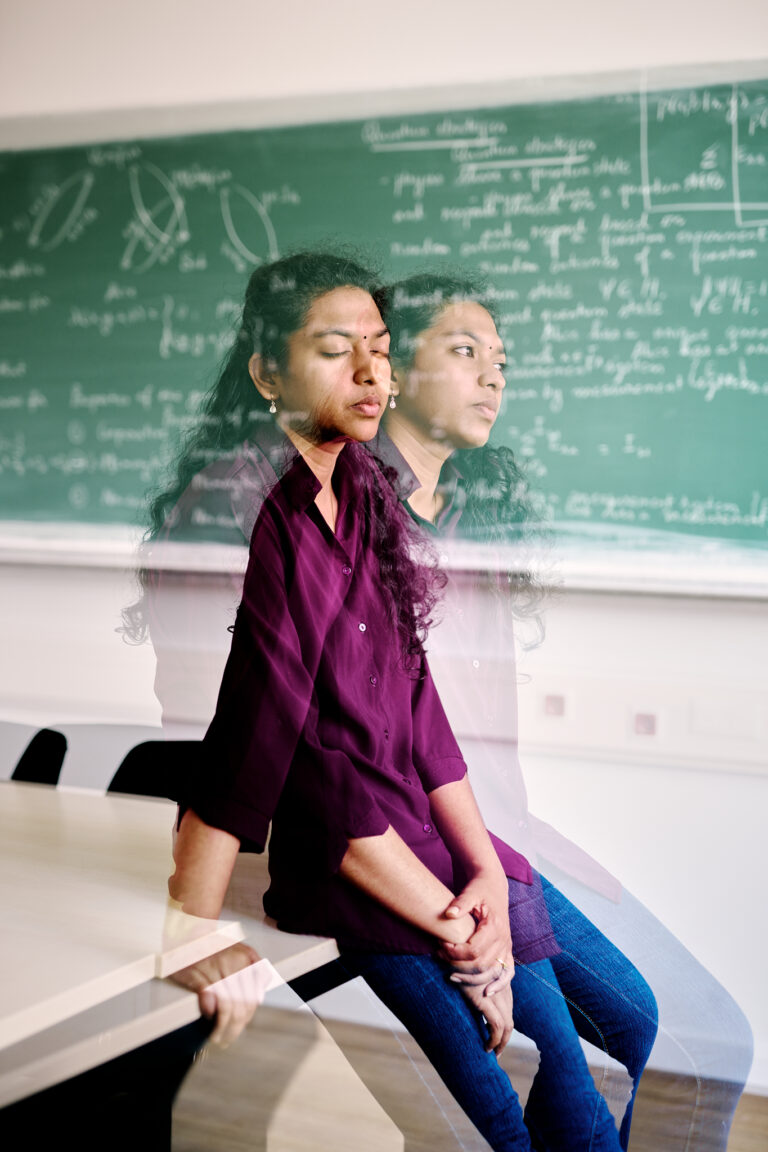
Dr. Priyanga Ganesan contemplating quantum information theory. Photo: WIRE/Nikolaus Urban
6. What was your biggest research disaster? What did you learn out of it?
Thankfully, I haven’t had any big research disasters yet. There have been a few times when I had a research idea or wanted to work on a project, only to find out that it had already been recently done by another researcher!
These events have made me more conscious about procrastination and have also motivated me to discuss/collaborate with researchers having similar interests.
7. What keeps you motivated in your work day in and day out?
From a very young age, I have dreamt of becoming a mathematics professor at a leading Indian institution. The motivation to fulfill this childhood dream keeps me going every day.
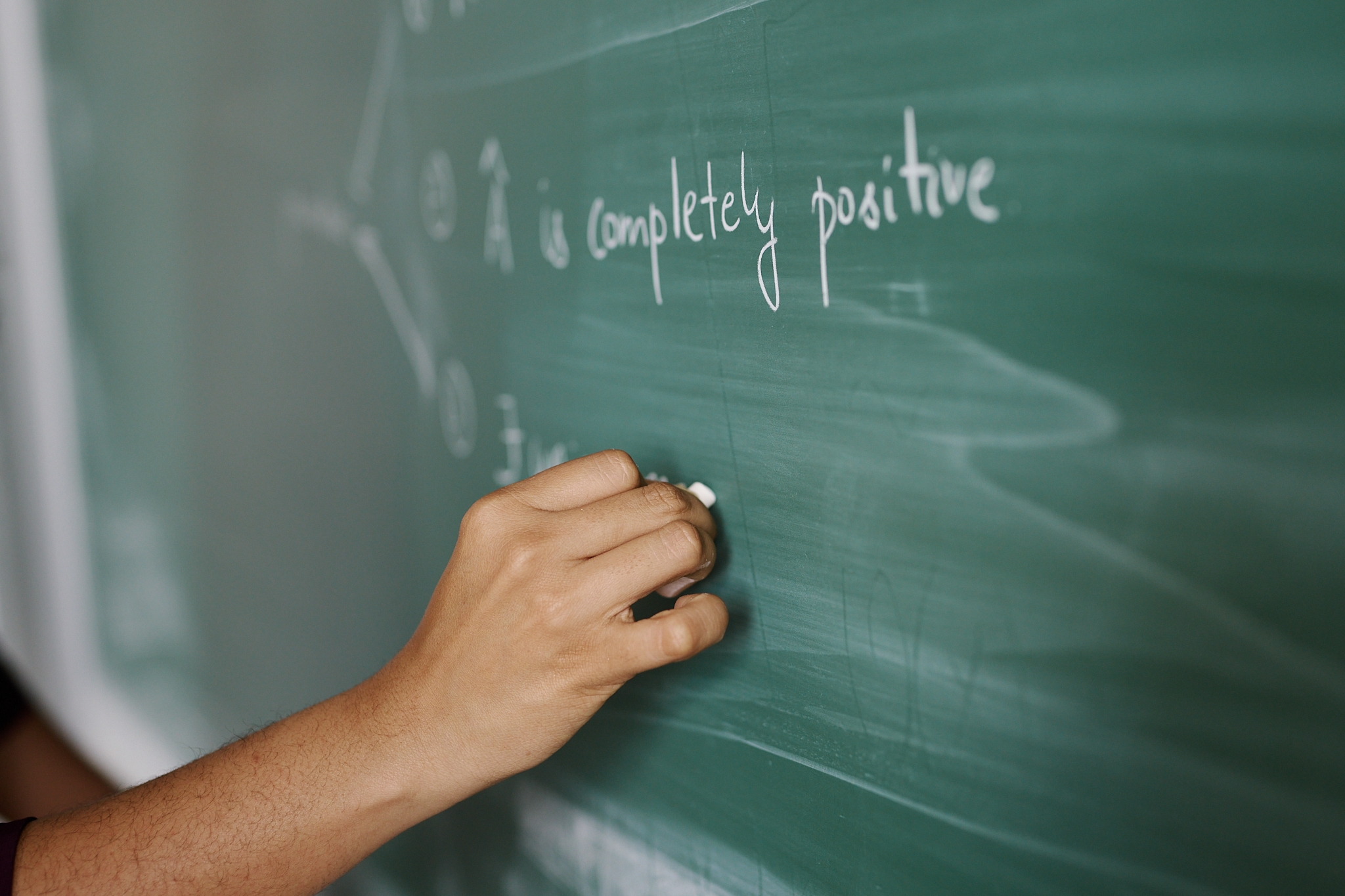
8. Which (historical) important scientist / researcher would you like to have dinner with? What would you ask?
I would be interested in meeting the great Indian mathematician, Srinivasa Ramanujan. He was a prodigy who made pioneering discoveries in number theory within a short lifespan and his work has been a source of new mathematical ideas and research for over a century.
If I had the opportunity, I would ask him how he produced so many mathematical results without any formal training and what helped him succeed while growing up with very limited resources in colonial India.
9. What was the funniest moment you had in science?
When I was an undergraduate, I had emailed a professor requesting to do a summer research internship with them. The professor replied after two months saying they were unable to host me for an internship, but would be interested in meeting with me. I politely declined their offer since I had begun another internship by then. I was very shocked later when I learnt through a friend that the professor was a Field’s medalist (the mathematical equivalent of a Nobel Laureate)!
When I recall the incident now, I find it very stupid and funny that I did not recognise a Field’s medalist and missed an opportunity to meet him.
10. If time and money were no object: Which research project would you like to do?
Besides being a mathematician, I am a huge nature lover and environmentalist. If I had the resources, I would work on projects related to environmental conservation and sustainability. In particular, I would like to use mathematical modeling and simulations to find solutions to climate change, animal extinction and environmental pollution.
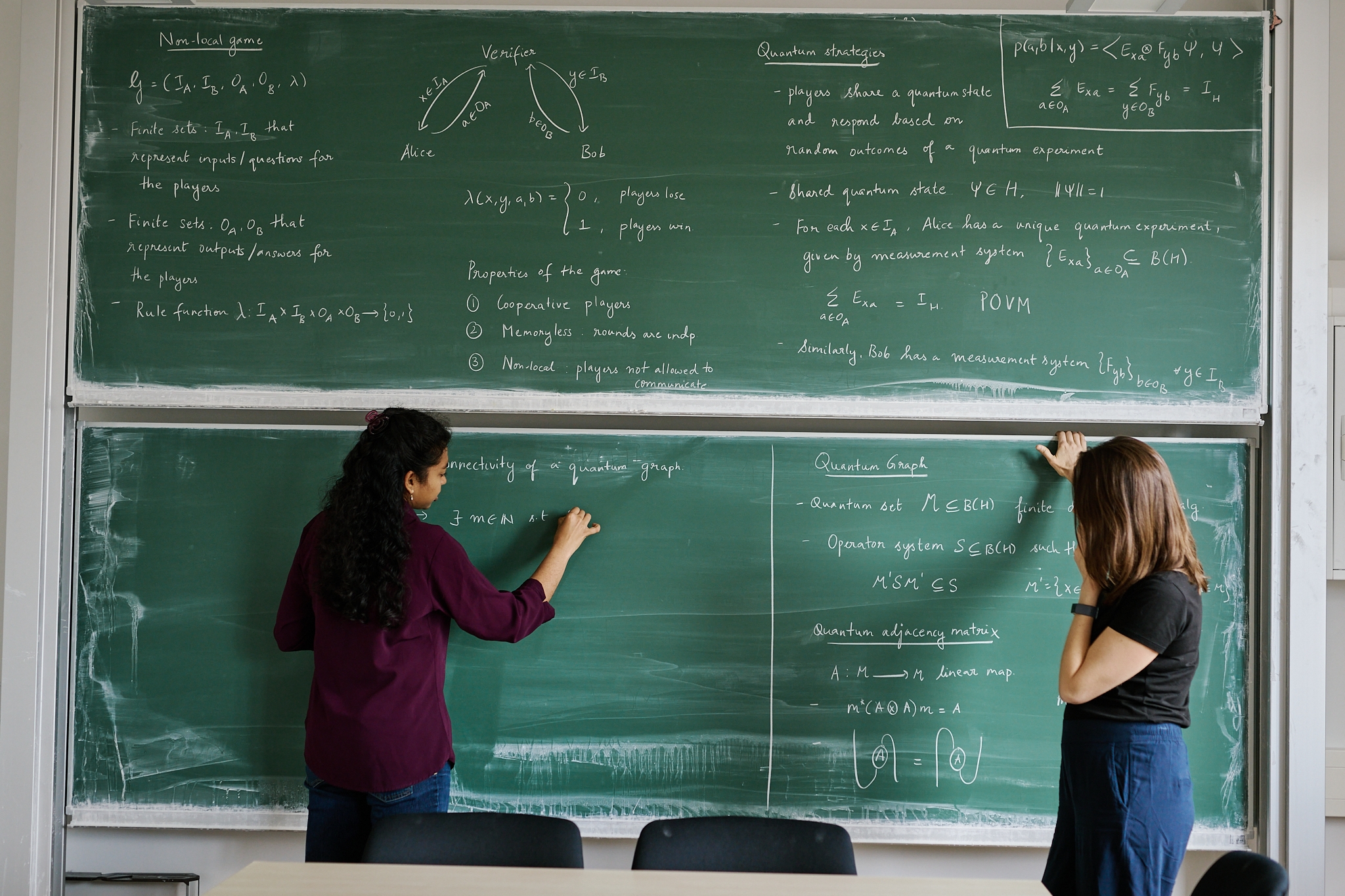
11. What is your favourite research discipline other than your own?
Besides my research discipline in mathematics, I like combinatorics (which deals with counting problems). Outside mathematics, I like the study of computer science and Sanskrit (an ancient Indian language).
12. What do you consider the greatest achievement in the history of science / research / your field?
I think that the invention of the internet is the greatest achievement of this era, enabling the rapid exchange of information and ideas across the globe. I believe that today’s world and the field of research would look very different and progress at a much slower pace in the absence of the internet.
13. Which experience in the world of science disappointed you most?
The continuous pressure to publish papers and the evaluation of a researcher based on their publications is a very disappointing experience for me. It often causes researchers to doubt their abilities and passion, and also deters them from venturing into new fields.
14. If you could change one thing about the academic system you have last done research in, what would it be?
I would add some industry training programs to the PhD curriculum that enables PhD students to gather skills and experience for working in the industry. This would help researchers prepare for opportunities outside academia and allow them to make an informed career choice.
15. How did you survive your PhD time, and what advice and tips do you have for future PhD students?
I had a very supportive and caring supervisor who helped me survive my PhD time and made it a very positive and enriching experience.
To keep myself recharged, I followed a “No-Screen” policy during certain hours/days of the week, during which I did not look at any screen, including phones, laptops, computers and TV. These breaks helped me to get back to work feeling refreshed. In addition, I was involved in several student organizations and outreach activities, which allowed me to regularly experience the fun side of student life
As for advice and tips, the overall PhD experience is strongly dependent on the research environment and the people you work with. Therefore, I would advise future PhD students to take some time to investigate and explore their options when choosing a PhD supervisor and research group. I would also recommend exploring different areas in their field of interest before selecting a topic for their dissertation. Besides building one’s research, I advise using the PhD time to gain valuable leadership and communication skills by getting involved in science outreach programs and other professional development opportunities. Additionally, I strongly recommend expanding one’s research network during the PhD by going to conferences, giving presentations and collaborating with other researchers in the community.
16. What direct or indirect relevance does your research have for society?
Many governments, businesses and industries across the world are currently investing a huge part of their resources in developing quantum technology and harnessing the power of quantum phenomenon. My research is a step in this direction and explores mathematical tools, called operator algebras, for applications in quantum information theory.
Communication channels are often imperfect, insecure and subject to noise, which distorts transmitted information. In quantum information theory, we use the laws of quantum mechanics to achieve more efficient transmission of information and secure communication between distant points. My current research focuses on the study of quantum graphs. These are mathematical objects which model the noise arising in communication via quantum channels. My research investigates mathematical properties of quantum graphs, and is useful in the development of accurate transmission of messages through a quantum channel.
Quantum systems have some “magical” properties, such as entanglement and superposition, which can be utilized for improving many of our daily tasks. For example, quantum computing is a new type of computing that uses quantum phenomena and processes information in a different way than classical computers. In a classical computer, operations are performed by using BITS, which are either 0 or 1. In a quantum computer, we instead use QUBITS. Qubits can be a 0 or 1, or both at the same time (by the property of superposition). They can also be entangled, so that the state of one qubit depends on another. These properties allow quantum computers to perform certain calculations much faster than classical computers and also perform multiple calculations at the same time. For instance, many of the current encryption algorithms that are used to protect sensitive information (such as credit card purchases) rely on the difficulty of factoring large numbers. This can be easily solved by a quantum computer. Therefore, quantum computers can break current security systems and in return be used to develop more secure forms of cryptography.
Quantum technology has the potential to revolutionize the world by solving problems that we cannot achieve currently. However, we are still far from implementing it in practice and need more understanding. My research contributes to this endeavour by developing theoretical results that advance our knowledge of quantum graphs.
17. How did you imagine the life of a scientist / researcher when you were a high school student? Is it actually different? In what way?
My visualization of a scientist was often a lone person working in a lab wearing a white coat and experimenting with colorful chemicals. I imagined a scientist’s life to be very focussed on their research and somewhat absent-minded about the other aspects of everyday life.
Different? Yes, it definitely is. First, many researchers (including myself) do theoretical or computational research. So, scientists may work from home wearing pyjamas, instead of working in labs with white coats. Second, the work of a researcher is often highly collaborative unlike what I had imagined. Third, scientists can have a perfectly normal social life, as in other professions.
18. What do you like most about the “lifestyle” of a scientist / researcher? And what least of it?
As a researcher in mathematics, I enjoy having flexibility in my daily schedule and the opportunity to travel to various places for conferences and research collaborations.
The sad part of a researcher’s lifestyle is being surrounded by a constant sense of guilt when you are not working. It is difficult to fully relax and enjoy a weekend/vacation.
19. Do you think your career would have evolved differently if you were a man?
I would still have chosen to become a scientist/mathematician if I were a man. However, my journey might have been slightly different. As a woman, I feel more pressured by my biological clock and this influences some of my professional choices. Secondly, I might have experienced lesser imposter syndrome as a man, and perhaps might have explored a few other directions with more confidence.
20. Where do you see yourself in 10 years?
I see myself in a permanent faculty position with research and teaching duties at a leading university. I would like to be recognised as an excellent mathematics teacher and as an established researcher, who is skilled at communicating their research and is involved in several mentoring and diversity programs.
21. Which interest(s) have you given up for a life in mathematics?
I am a very experimental person and I love working in physical laboratories with chemicals and instruments. I am not able to pursue this now since my research in mathematics is completely theoretical and computational.
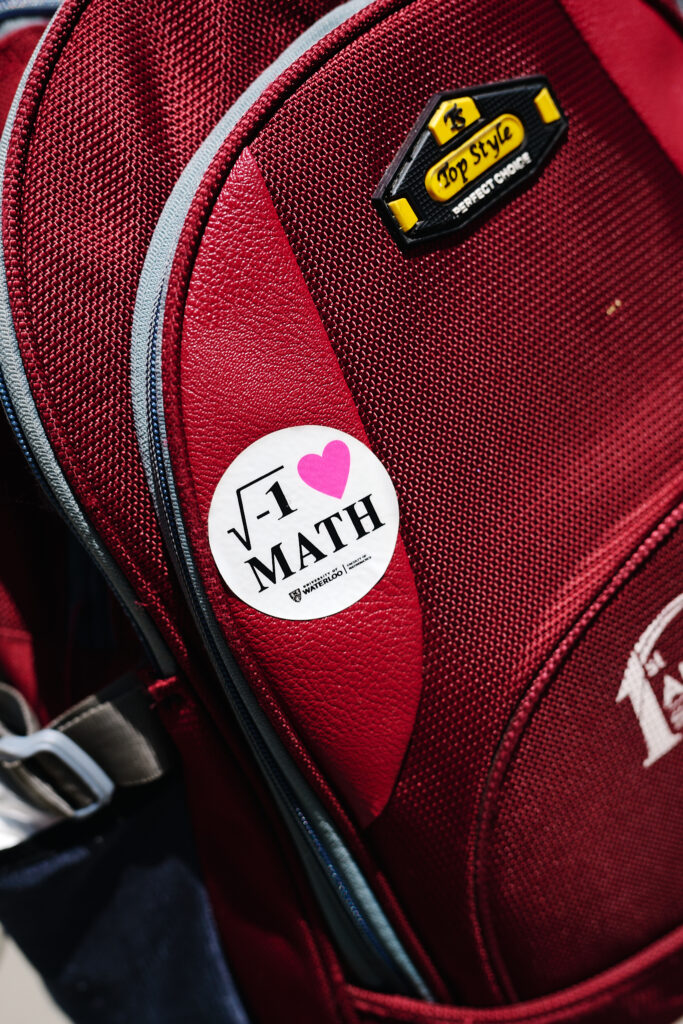
22. If you had a daughter, what would you advise her not to do?
I would advise my daughter NOT to limit herself to fit into the “norms” of the world. Also, I would advise her NOT to get dominated by a single aspect of life and instead adopt a balanced approach towards all aspects of life (career, family, health, etc).
23. What surprised you most about the Cluster of Excellence Mathematics Münster at the University of Münster?
The very large number of research activities, academic visitors and weekly summer workshops at Mathematics Münster has been a pleasant surprise to me. It is well known that the University of Münster is one of the world’s leading research centers in operator algebras. Yet, it is more active than what I had imagined!
24. What is the biggest difference between the academic system you have last done research in and the academic system as you experience it in Münster / Germany?
The culture of having a joint lunch everyday with the larger research group has been a new experience for me in Münster. I think this is a great practice and has enabled me to regularly connect with other researchers and department visitors in related areas.
25. What is the biggest challenge for you when it comes to balancing family and career? How do you master this / these challenge(s)?
My current biggest challenge is securing a fulfilling academic job that also allows me to live close to my family. It is particularly challenging since permanent faculty positions are hard to get.
Having supportive family members and communicating transparently about one’s priorities and constraints is helpful in addressing these challenges. My spouse has been very understanding and is currently pursuing a remote job. This has allowed us to live together in a region close to my current workplace. However, I am yet to find a long-term solution.
26. How often do you as a friend / partner / mother / daughter feel guilty when you have to meet a deadline – again?
About 50% of the time. I can get very grumpy when I am working towards a deadline. But my family has been very understanding of my worklife and I immediately apologize for my behaviour once my work is complete.
27. How did you imagine your future as a child? What profession did you want to pursue?
As a child, I aspired to become a scientist or astronaut. Since my teenage years, I wanted to pursue a career in mathematics and envisioned my future as a mathematics professor.
28. How do you keep your head clear when you are stressed?
When I am stressed, I start cleaning my room or desk space. Cleaning the physical space around me helps me to organize my thoughts and to think more clearly. It also gives me time to cool down, reflect and plan the best course of action.
29. What worries you most about the world?
I am very concerned about environmental degradation caused by urbanization and other human activities. Also, the growing consumerism (material production and acquisition) in the world is very disturbing to me.
30. And what makes you most happy about the world?
I feel very happy when I see pristine nature, undisturbed by human interference, including happy animals as well as nature’s diversity and genuine human relationships.
31. What or who inspired you to become a mathematician?
In addition to my natural interest in mathematics, the Tamil movie character Maya from the movie Kakka-Kakka, which I watched at the age of 10, inspired me to become a mathematician. The lead actress in the movie played the role of a mathematics teacher. She was portrayed as an intelligent, graceful and dignified woman, who was loved by her students. I was very impressed by the character and aspired to become like her when I grew up!
32. Which of your traits bothers you the most in your daily work? And which help(s) you the most?
I am introverted and prefer to work alone. But research requires collaborations and team work, which is challenging for my personality.
I am very analytical and independent, both of which are useful traits for a researcher.
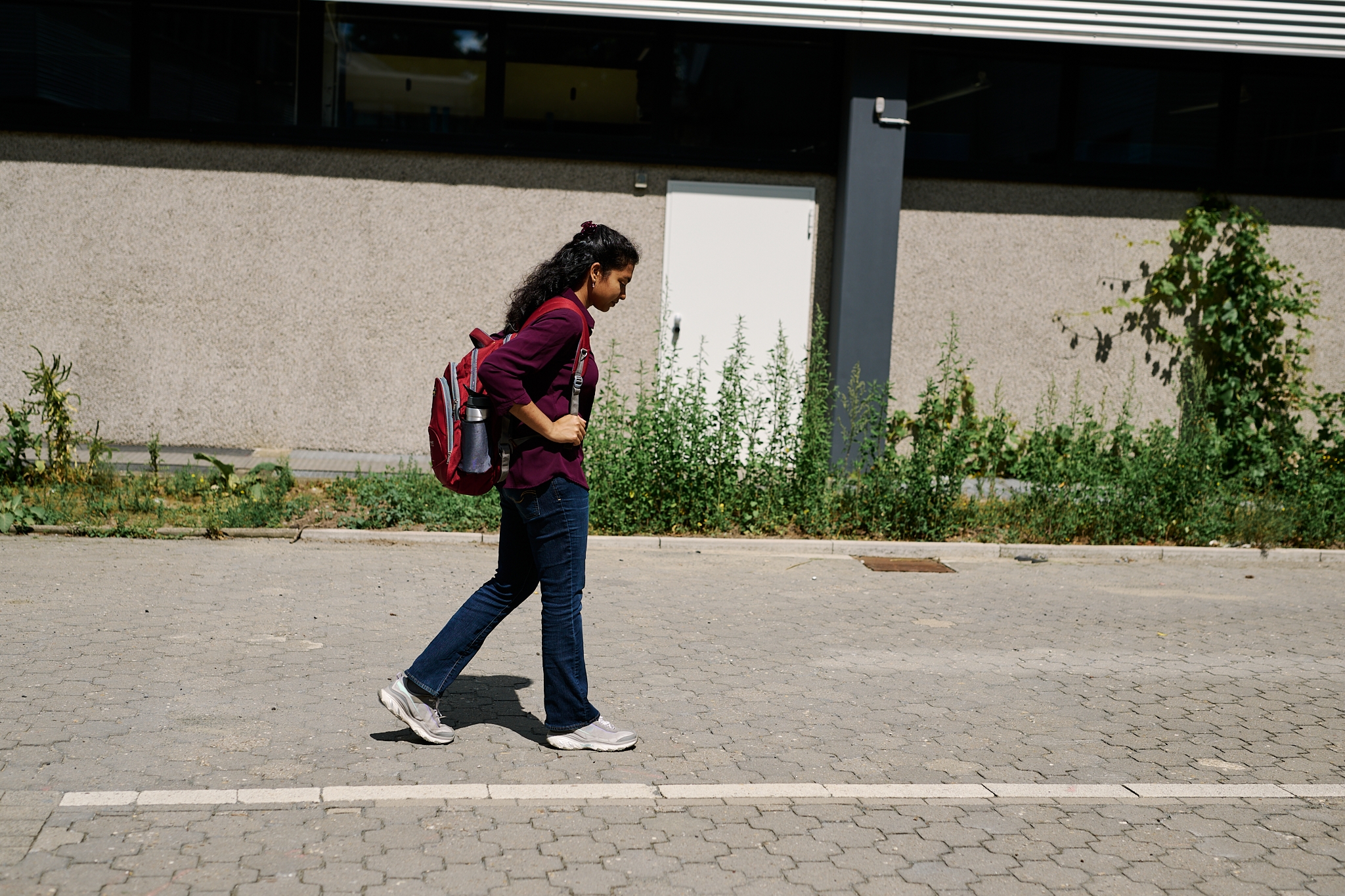
33. If you could travel in time: in which epoch and at which discovery or event would you have liked to have been there?
I would like to travel to the time (4th Millenium BC) where numbers were first invented. It would be exciting to witness the first venture into abstraction and the discovery of fundamental mathematical concepts such as counting.

